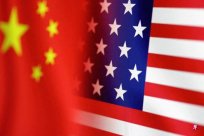Many people in the Chinese and American sciences have recently noticed a news that Wu Ying, a Chinese female scientist taught in well -known universities in the United States, regretted his life in July.
After the bad news spread, Wu Ying's colleagues and friends, including Chinese universities, and scholars, who did not know her, were shocked.In addition to Wu Ying's good reputation in the scientific community, this incident has attracted great attention in the academic community. Because of some of her experiences during her lifetime, many people have ignited the anger of many people again.
Wu Ying is a neuros scientist and taught at Northwestern University in the United States before his lifetime. He is mainly engaged in the research of RNA editing and RNA binding protein regulation. It is related to dementia and felmeal.Wu Ying was born in Hefei, Anhui in 1963. He studied in the United States after graduating from Shanghai Medical University in 1986 and obtained a PhD in Cancer Biology at Stanford University.She then went to Harvard University to engage in postdoctoral research, and taught at the University of Washington University in San Louis, and entered Northwest University in 2005.
Sino -US relations have changed sharply from the Trump era, and the dislocation and hostility between each other are increasingly rising.In response to security threats from China, the US Department of Justice launched the "China Initiative" in 2018 to crack down on people suspected of being engaged in Chinese economic spies and researching theft.After Wu Ying's death, a good discussion was centered around the scientific circle, especially the chilling effect caused by the group of Chinese scientists.
This plan investigated the university professor in the United States to examine their relationship with foreign countries.According to the incomplete statistics of MIT science and technology, as of 2021, the "China Action Plan" prosecuted a total of 148 people, and 88%of the defendants were Chinese or Chinese citizens, and there were several cases of widespread attention.
Charles Lieber, a professor at the Department of Chemistry and Chemistry of Harvard University, was accused of concealing the "Thousand Talents Plan" participating in the Chinese government and was arrested in 2020.Chen Gang, a Chinese professor, mechanical engineering and nano -technical experts, also accused of concealing relations with China when seeking federal funding, but the US Department of Justice later revoked his control.
In the years of the "China Action Plan", academic people and civil rights organizations criticized that such surveys brought panic to the academic community, promoted prejudice to Asians, and harmed the attraction of the United States to the world's top talents.Data show that in 2021, 1490 Chinese scholars left the United States and went to Chinese universities.This plan ended in 2022, but the "witch hunt" -style killing atmosphere did not fade so quickly.The Nanhua Morning Post disclosed in a report last week that in the past years, the National Institute of Health (NIH), which provided research funds for Wu Ying at Northwest University in the past years, has launched a similar project with the same period as the "China Action Plan" and investigated in the past six years.More than 250 scientists with Asian people.
Reported that these investigations eventually reached only two prosecution and three convictions, but 112 scientists were unemployed, and Wu Ying was also the object of investigation.Wu Ying's colleagues in the academic world believed that these investigations destroyed her career.
After Wu Ying's death, there were still many mysteries that have not been solved.There are rumors that the long -term survey of NIH has led her laboratory to be closed and scientific research. Is this true?Wu Ying participated in China's "Thousand Talents Plan" in 2009. Is she investigated?Is the pressure on the investigation that leads to the direct reason for her ending?
In any case, this tragedy once again reviews the shadow of the Chinese and American political environment to the academic field.Even if the relationship between the two countries stops falling, the defense of both parties based on security considerations is still heavy and firm.Some Chinese scholars have revealed privately that when they arrived in the United States several times this year, they have become the norm by the "small black house" when they enter the country, and they will even be detained for several hours.
The communication between Chinese and American students is also decreasing.There are not many American students in China, and the epidemic is further reduced after the epidemic.American Ambassador to China, Burns, said in a speech at the end of last year that there were 15,000 American students in China six or seven years ago. In 2022, it fell to 350."Interests".
The same is true in the United States on the other side of the ocean.From 2022 to 2023, there are about 290,000 Chinese students studying in the United States, which is more than 20 % lower than 370,000 in 2019.Campbell, Deputy Secretary of State of the United States, said recently that based on security considerations, American universities are restricting Chinese students in contact with sensitive technology.He even advocated that Chinese students studying in the United States should study humanities, not science.It seems that Chinese students going to the United States in the United States in the next few years will be further reduced, which will not be surprising at all.
Compared with the fields of science and technology, trade, military, etc., academic cooperation and exchanges are relatively non -political. It should have been a breakthrough in the ice break of the relationship between the two parties.There are top scientific talents in China and the United States, and there is almost no global topic that does not require Sino -US cooperation. This kind of cooperation is cut off because of political factors. Innocent scientists are suspicious and questioned, so they are forced or actively abandoning cooperation.Research, this is undoubtedly a scientific regression.
There is also a need for improving understanding between China and the United States, and folk exchanges represented by education, especially the younger generation lives through the language and culture of the other party, and live in each other's country to understand each other's views and positions.The ability to think about, so that the distance in thinking is essential.A few years ago, when the representative of the American Zhihua School died, many people were asking a question. Will there be scholars who can deeply and objectively treat each other?The current situation is not optimistic. As long as the exchanges between China and the United States in academic research are not accelerated, they are grateful.



